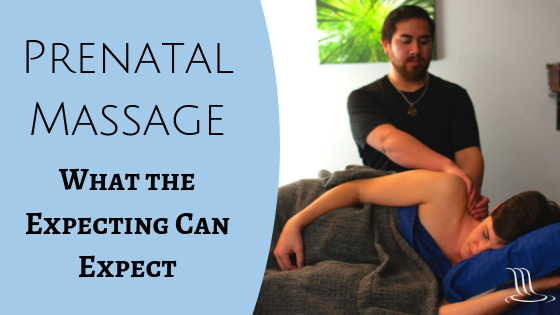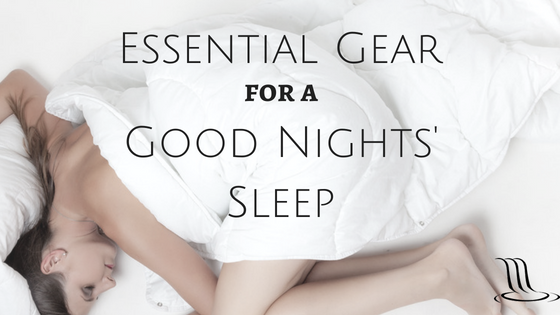Being pregnant brings with it all kinds of changes and stresses on a woman’s body. At The Good Life Massage, we’re proud to offer prenatal massage. This specialized approach to massage gives pregnant women all the benefits of massage as they get ready for delivery.
We sat down with Michelle Green, LMT to talk about some of the differences between prenatal massage and regular massage. Prenatal clients are among our favorite clients to work with, but there are some things you should know before you come in for a prenatal session.
First, whether you’re a returning client or you’re new to The Good Life Massage, you need to inform your massage therapist if you are pregnant. As healthcare providers, this is something we need to know to keep both you and the baby safe, so please be sure to mention your pregnancy on your intake form. If you are pregnant, the front desk will give you an additional intake form with questions relating to your pregnancy. We understand that you may want to keep the news to yourself, and that’s understandable. But we really do need to know, and are bound by law to keep your medical information private.
How massage can help you cope until delivery day
Whether pregnant or not, regular massage therapy helps with a number of issues, including muscle soreness, posture issues, and chronic pain, as you might expect. But it has also been shown to help with depression, digestive issues, and sleep. All of these are things pregnant women could use extra help with, but there’s even more to it than that.
In Michelle’s experience, pregnant clients have particular needs that massage can most directly address. “Prenatal work can really help with a lot of those pregnancy aches and pains whether it’s low back and hip pain, to pain in the knees and feet. I’ve also come across a lot of women who have had some upper back and shoulder pain as they get a little bit farther along, and some of the massage techniques used can really help to relax those and kind of stretch things back out to keep you comfortable during the length of your pregnancy.”
Getting you comfortable
Baby bumps don’t fit on a massage table in the traditional way, and massage therapists need to adjust their modalities and techniques to accommodate pregnancy. This isn’t just a nice adjustment–it can be critical to the safety of the mother and unborn child.
“The massage therapist is going to take a little bit of extra time and care with the massage,” Michelle says. “They’re going to set the table up a bit differently, depending on how far along you are in your pregnancy, usually keeping you on your side and making you really comfortable with bolsters or pillows that we’ll put underneath the legs.
“We’ll give you a nice little pillow to snuggle with as well. It kinda helps to keep your spine and your shoulders as well as your low back in alignment to keep you comfortable while you’re on the table. And just like any other massage, you can undress down to whatever your comfort level is and really get a chance to relax.”
Your therapist may also use specially designed support cushions to allow you to lay face-down on the table as with a traditional massage. This is one of the reasons it’s important that we know about your pregnancy in advance of the session–so we can be sure we’re prepared with the necessary equipment on the day of your session.
The right massage at the right time
How and where you’re massaged depends on where you’re at with your pregnancy. Very early on, there are few noticeable differences in how we’ll work on you. “A massage therapist will do the majority of the work while you’re on your side. And this is for a little bit later into your pregnancy,” Michelle explains. “A lot of the times when you’re early on, you can still lay comfortably on your back so that some upper shoulder and back work can be done from that position as well.”
If you think you may need assistance getting on and off the table, our therapists would be happy to help. For this reason, you may feel more comfortable working with a female therapist, so please note that when you book your massage. While we are happy to accommodate any request regarding the gender of your therapist, you should know that all our therapists of any gender are well-trained and qualified to give our pregnant clients a safe, comfortable massage experience.
Can massage induce labor?
This myth seems to have legs, and it’s not hard to understand why. Who would want to give birth on a massage table? But massage professionals like Michelle know this just isn’t true. “You don’t really need to worry about early labor being induced during massage. The techniques that are used are very safe and won’t affect that at all.”
Pregnancy is difficult enough. Let us help you get through it. Book your prenatal massage now.
If you want to buy a massage for someone special in your life who might be expecting, you can purchase a gift card here in any amount you wish.
Tom Gunn is the blog editor and marketing director at The Good Life Massage. You can reach him at marketing@goodliferenton.com
Michelle Green is a licensed massage therapist at The Good Life Massage. You can reach her at support@goodliferenton.com




 It’s already the end of the day. There’s so much more you wanted to do, but you’re burned out. There don’t seem to be enough hours to fit it all in. What’s worse is that when you try to name everything you’ve accomplished, the list seems pitifully short. What happened to all that time? Is something getting in your way? Why is it that some people seem to be lapping you in their success, and you feel like you’re practically standing still?
It’s already the end of the day. There’s so much more you wanted to do, but you’re burned out. There don’t seem to be enough hours to fit it all in. What’s worse is that when you try to name everything you’ve accomplished, the list seems pitifully short. What happened to all that time? Is something getting in your way? Why is it that some people seem to be lapping you in their success, and you feel like you’re practically standing still?








